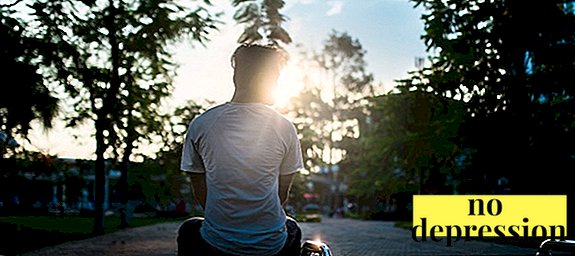Habits define our lifestyle. The bad ones pester us, but the good ones need to be worked out. How and why to do it? What are the most useful habits? We will talk about interesting studies, tell you about 10 good habits that make life brighter, and us - healthier.
What is the habit
Habit is a repetitive form of behavior that does not require volitional effort. If our consciousness reacts positively to a certain action and feels discomfort in its absence, it means that the addiction has begun. The process is accompanied by a physiological reaction - a combination of neural connections that determine the algorithm of actions.
The addiction is formed after repeated repetitions - the brain remembers what to do and goes into the unconscious mode.
Habit is a good way save internal resourcesas the brain "does not turn on". According to the thumbnail, the action takes place much faster than during conscious behavior.
For example, when we return home, the first thing we do is turn on the light in the corridor. But if you move the switch, our hand will not fall on it. We do not think like this: "It's dark, you need to turn on the light, and to do this, find the switch", but simply press the button. In everyday life, such trifles are not considered, and each has its own well-established thousand habits.
Anatomy of habit
Psychology views all human emotions as a habit. Enthusiasm, melancholy, pedantry - we choose all this in ourselves, becoming captives of emotions, and after a behavioral formula.
How the habituation mechanism works
Researcher I. P. Pavlov argues that a person gets used to absolutely everything. There is a kind of vicious circle - we get an emotion, we get used to it, we fall into its captivity. Once experienced emotions give us a ticket to the risk zone to feel them again. Our consciousness already has a pattern, knows how to react to such events or circumstances. And the brain, having managed to adopt a model of behavior, will prevent you from overcoming the habit through anxiety and internal discomfort.
For example, we were afraid of dogs. The brain remembered our reaction and prepared an appropriate formula for it. Now the consciousness is ready to scare at the sight of any dog. The dominant principle works - the excited center of the brain stops the work of other nervous connections, so we cannot quickly get out of depression or overcome fear.
Where do habits come from
- They are vaccinated in childhood - wash their hands before eating, brush their teeth in the morning, put their shoes in order from the evening, and so on.
- They arise spontaneously during interaction with society - to avoid elevators, to drink coffee in the morning.
- We form them ourselves - drink warm water on an empty stomach.
Types of habits:
- Professional - language teachers automatically correct the errors they see or hear in their minds.
- Household - wash hands after using the toilet.
- Social - respond to the greeting: "Happy New Year!".
- Individual - take the initiative.
Depending on the form of manifestation habits are:
- Physical - shuffle feet.
- Emotional - to end the conversation wishing a good day.
- Behavioral - clean up the room according to the usual plan.
Good and bad habits
All habits are either beneficial or harmful. The difference between them is that we lead the first, and the second lead us. Bad habits usually find us themselves, and to work out good ones, we have to work.
Why do you need to form good habits
We are improving
Harmful activities steal time, money, and emotions from us, and useful ones help us achieve our goals, improve our efficiency. To feel good, to be confident and energetic, you need to get used to useful actions.
We stop forcing ourselves
Willpower is an effective way to force yourself to do something, but it takes effort. Each race forcing itself to some kind of action, we unknowingly grieve, lose enthusiasm. But if the action is turned into a usual thing, we will soon delete it from the list of "coercions."
Good wins bad
Just stop eating at night is difficult - all thoughts will be about food in the refrigerator. And if you make a substitution, for example, drink a cup of green tea with lemon before bedtime, the ritual of filling the stomach will remain, but its meaning will change.
How to develop good habits
Define the purpose
To get used to something especially good, you need to make an effort. When there is a clear understanding of what I am doing and why, the process will be easy. For example, the goal - to improve the condition of the skin, saving on a beautician. To achieve this, you need to regularly do a facial massage, use special tools, relax more. Thoughts about the upcoming photo session in the new image will give strength.
Start simple
It’s impossible to become an adept of a healthy lifestyle in one day, but in a month you can. If we decide to start a new life on Monday, we will remain at the same place for a very long time.
If we gradually remove junk food from the table, walk more, sleep longer, we will develop a whole range of good actions. The main thing is to take small steps in order to harmoniously and firmly consolidate new formulas for yourself.
How long does it take to develop a habit
Interesting study
Scientists at London University College conducted an experiment to find out how long a person needs to form an uncomplicated habit.
96 volunteers kept a diary, recording actions under the sections "I force myself" and "I do, without thinking." As a result, psychologists have found that habituation occurs on average after 60 days of repetition.
In this case, a one-day pause did not affect the result.
Top 10 Good Habits
- Drink on an empty stomach a glass of warm water. So you can gently start important processes in the body.
- Make a shopping list. Saving money and time.
- Do not walk down the street, buried in the gadget. There is a risk of injury to yourself or others, to get into an accident.
- Start the morning with a smile. Having received the hormone of joy right after sleep, the whole day will pass more positively.
- Follow the posture. If you keep your posture straight, walking along the street or standing at the stove at home, you can get rid of the stoop.
- Hug more often loved ones. A hug is a way to quickly get the hormone of joy, strengthen the immune system, relieve tension and feel loved and loved.
- Ventilate the room before bedtime. Fresh air helps to relax and fall asleep faster. It makes the atmosphere of the room easier, healthier.
- Relax before bedtime. According to statistics, 8 out of 10 young people look at gadgets before bedtime. The screen acts hypnotically - it's hard to break away from it, although the eyes already want to rest, and the brain - to relax.
- Eat healthy. If a few walnuts, a handful of berries or fresh fruits go into the category “mast hev for every day”, the well-being will noticeably improve.
- Throw away unnecessary. Practically everyone has things from the category "it is a pity to throw out, let them still lie down." Unclaimed shoes, inscribed notebooks, and piled dishes store negative information, cluttering up the house. A great habit is to throw out all the old, unnecessary, used things weekly.
You have just learned what constitutes a habit, what is the mechanism of its action and how much time is needed to form it. Maybe you should conduct an experiment to find out if you have enough 60 days to get used to something useful?



